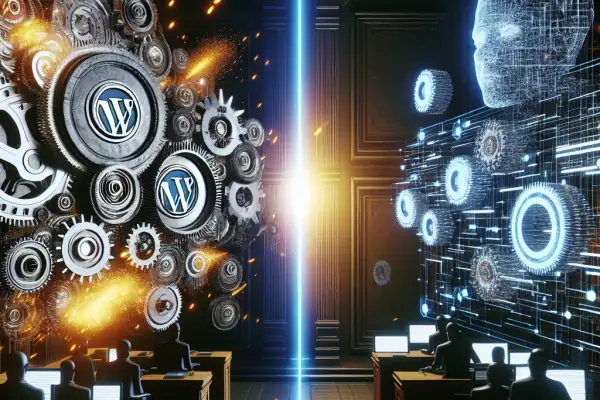Table Of Contents
WP Engine vs. Automattic: A Dramatic Legal Battle Unfolds
As the world of technology continues to evolve, so do the disputes between the innovators within it. WP Engine, a notable name in web hosting, has taken legal action against Automattic and its CEO, Matt Mullenweg, co-founder of WordPress. The allegations? Extortion and abuse of power. The unfolding events present a captivating story of legal wrangling and power dynamics in the tech community.

Background of the Dispute
The roots of this dispute trace back to conflicts over trademark infringement and the contributions to the open-source WordPress project. WP Engine accused Matt Mullenweg and Automattic of deviating from their commitments to maintain open-source projects, prompting WP Engine to take legal measures to safeguard its interests and uphold the trust of the community.
Automattic’s determination to protect their trademarks led to a series of legal exchanges, highlighting a broader conversation about governance and ethics in open-source projects.
The Heart of the Allegations
WP Engine’s accusations are not taken lightly. They claim that Mullenweg’s actions have exposed conflicts of interest, potentially jeopardizing the integrity of the WordPress community if left unaddressed. This legal challenge highlights the significant governance issues beyond typical business disputes—issues surrounding control, power, and open-source philosophy, all vying for attention in this legal fray.
A Timeline of Tensions
The conflict spiked when Mullenweg labeled WP Engine “the cancer of WordPress” after expressing discontent over trademark issues. This sparked a legal back-and-forth, with cease-and-desist letters exchanged between the parties, escalating tensions. Moreover, Mullenweg temporarily banned WP Engine from accessing essential WordPress.org resources, an action that prompted further legal responses.
Proposed Terms and Their Rejection
Amidst the turbulence, Automattic proposed a seven-year agreement that required WP Engine to pay royalties or contribute resources equivalent to 8% of its gross revenues for trademark usage. WP Engine, however, rejected these conditions—particularly the constraints on plugin forking—intensifying the legal battle.
What’s Next?
The outcome of this lawsuit is uncertain, but it undoubtedly sets the stage for significant industry implications. As tech companies navigate the blurred lines between proprietary rights and open-source freedom, the legal principles established in this case could redefine these relationships.
Understanding the motives and repercussions of this conflict is crucial for industry stakeholders. It highlights the delicate balance between innovation, control, and community trust that tech companies must uphold.
In conclusion, WP Engine’s battle with Automattic illuminates more than just a legal conflict; it’s a mirror to the ethical and operational challenges in managing open-source frameworks. As the legal process unfolds, the tech community watches closely, anticipating the potential ramifications for similar platforms and projects.

